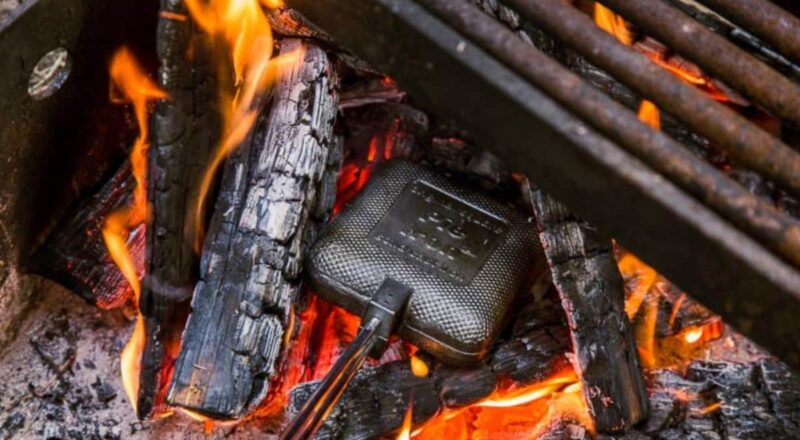How to Store Your Pie Iron to Keep It in Top Shape is an essential skill for anyone passionate about outdoor cooking. These sturdy cooking tools, often used over campfires, can last for generations if maintained correctly. Proper storage is a key part of this maintenance.
In this article, well explore comprehensive strategies and tips on how to store your pie iron effectively, ensuring it remains in excellent condition for your culinary adventures. Keeping your pie iron in top shape not only enhances its longevity but also ensures safety and efficiency in your outdoor cooking experiences.

The Importance of Proper Storage
Understanding the importance of proper storage is the first step. When you store your pie iron correctly, you prevent rust, damage, and unnecessary wear. This process involves cleaning, drying, and storing in appropriate environmental conditions, thereby ensuring its ready for your next adventure.
Cleaning Your Pie Iron Before Storage
Before storing your pie iron, make sure its thoroughly cleaned. After use, let it cool down slightly before cleaning off any food residues. Using a mild detergent and warm water can help remove any remaining debris, ensuring your pie iron is spotless before storage.
Further cleaning tips can be found in our guide on How to Clean and Maintain Your Grill.
Thoroughly Dry Your Pie Iron
After cleaning, drying your pie iron completely is crucial. Moisture is one of the primary causes of rust. Use a soft cloth or towel to dry it thoroughly, ensuring no water is left that could lead to corrosion during storage.
Season Your Pie Iron
Just as you season a cast iron skillet, your pie iron requires this pre-storage treatment. After cleaning and drying, apply a thin layer of cooking oil to its surface. This method protects against rust and ensures that your pie iron is well-maintained for future use.
Choosing the Right Storage Environment
Select a storage environment that is cool and dry. Humidity and moisture can cause rust, affecting the irons quality. Keeping it away from damp areas in a protective cover or bag can prolong its lifespan significantly.
For compact camping solutions, consider a Portable Tripod Grill for additional cooking experiences.
Practical Storage Techniques
Using Protective Covers
Investing in a protective cover can offer an additional layer of defense against environmental factors. These covers prevent dust accumulation and protect your pie iron from potential scratches or dents.
Regular Maintenance Checks
Even in storage, regular maintenance checks are vital. Inspecting your pie iron for any signs of rust or damage ensures that issues are addressed promptly, preserving the tools functionality.
Organized Storage Solutions
Keeping your pie iron organized alongside your other camping gear can facilitate easy retrieval and storage. Using hooks or dedicated shelves can help maintain organization within your storage space.
Expert Tips for Longevity
Avoiding Common Mistakes
Avoid common storage mistakes such as leaving food residues, storing in humid environments, or neglecting routine maintenance. Each oversight could lead to significant deterioration over time.
Understanding Your Pie Iron Material
Pie irons come in various materials, including aluminum and cast iron. Understanding the specific care needs of your irons material can optimize your storage efforts for longevity and performance.

FAQs
1. How often should I season my pie iron?
You should season your pie iron after each cleaning session, especially before long-term storage, to maintain protection against rust.
2. Can I store my pie iron outdoors?
While its possible, its not recommended to store your pie iron outdoors due to the risk of exposure to moisture and weather elements.
3. What should I do if I find rust on my pie iron?
If rust is present, scrub it gently with steel wool, then clean, dry, and season it to restore its condition.
For delicious recipes to try with your pie iron, visit Best Pie Iron Recipes and enhance your outdoor cooking journeys.
This article contains affiliate links. We may earn a commission at no extra cost to you.

